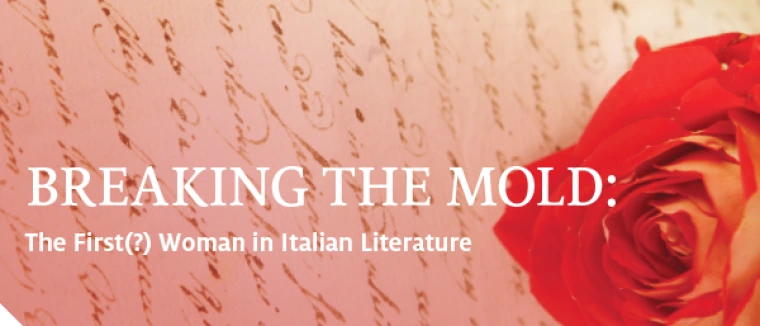Thirteenth-century Florence was not an ideal place to be a woman, especially a fairly outspoken poet. Active between 1260-1270, the woman known only as La Compiuta Donzella (the fulfilled damsel) attracted the attention of several male writers. Two of them were astonished that such wisdom could be found in a female. The third, the important poet Guittone d’Arezzo (1235-1294), praised her insights but reminded her to follow virtue. And yet, almost nothing is known about her, not even her name. She left a corpus of three sonnets, and her status as a woman in medieval Italy is a topic that her works all but invite us to examine. Presented by Fabian Alfie, Head of the Department of French and Italian, as part of Humanities Week.
Raising hell and blazing trails are both on the agenda for Humanities Week, October 13-17, 2014, presented by the College of Humanities. Meet famous and infamous groundbreakers of the past and delve into a world where gender boundaries are broken and cultural connections are made during the weeklong series of free events. All Humanities Week events are free and open to the public and most are held in the Dorothy Rubel Room at the University of Arizona Poetry Center, 1508 E. Helen Street, unless otherwise noted. For more detailed descriptions of the lectures, please visit hw.arizona.edu or call (520) 621-0210.
The College of Humanities is home to programs devoted to the study of the world’s languages, literatures, and cultures. The college consists of 13 individual units as well as several other academic and overseas-study programs.


